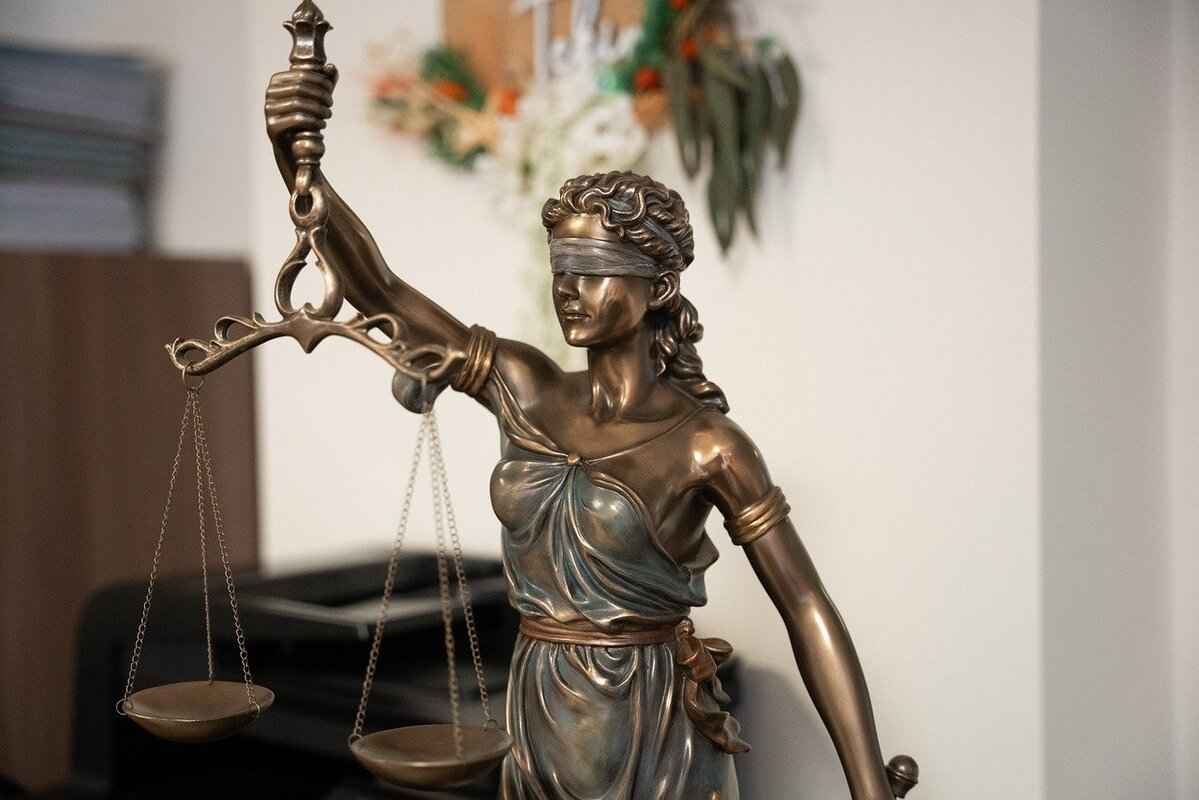This article delves into the intricacies of public prosecution cases in the United States, examining the filing process, pertinent laws, and the roles of various legal entities involved.
Understanding Public Prosecution
Public prosecution is a fundamental aspect of the American legal system, where the government initiates legal proceedings against individuals accused of crimes. This process is crucial for maintaining social order and upholding justice. It serves not only to penalize wrongdoing but also to deter future offenses. Key players in this system include:
- Prosecutors
- Defendants
- Law Enforcement Agencies
- The Judiciary
The Role of Prosecutors in Public Prosecution
Prosecutors are the backbone of public prosecution. They are responsible for evaluating evidence, making charging decisions, and presenting cases in court. Their primary goal is to ensure justice is served, balancing the need for public safety with the rights of the accused. This role requires a deep understanding of the law and the discretion to make decisions that can significantly impact lives.
Types of Prosecutors
Prosecutors operate at different levels of government, each with distinct jurisdictions:
- Federal Prosecutors: Handle cases involving violations of federal laws, such as drug trafficking and terrorism.
- State Prosecutors: Focus on state law violations, including theft and assault.
- Local Prosecutors: Deal with municipal and county offenses, often addressing misdemeanors and minor felonies.
Filing a Public Prosecution Case
The process of filing a public prosecution case is multifaceted and involves several critical steps:
- Investigation Phase: Before any charges are filed, law enforcement agencies conduct thorough investigations to gather evidence.
- Charging Decisions: Prosecutors assess the collected evidence to determine whether to proceed with charges. This decision is based on the strength of the evidence and the legal standards required for prosecution.
The Court Process in Public Prosecution
Once charges are filed, the case enters the court system, where several key procedures take place:
- Arraignment: The defendant is formally charged and enters a plea.
- Plea Bargaining: This process allows for negotiations between the prosecution and defense, often resulting in reduced charges or sentences.
- Trial Procedures: If a plea agreement is not reached, the case proceeds to trial, where evidence is presented, and a jury or judge determines the verdict.
Rights of the Accused in Public Prosecution
Throughout the prosecution process, defendants possess certain rights that must be upheld:
- The Right to Counsel: Defendants are entitled to legal representation, which is crucial for ensuring a fair trial.
- The Right to a Fair Trial: This includes the presumption of innocence until proven guilty, the right to confront witnesses, and the right to present a defense.
Legal Representation
Having an experienced attorney is vital for defendants navigating the complexities of public prosecution cases. Attorneys provide essential guidance, help formulate defense strategies, and advocate for their clients’ rights throughout the legal process.
Appeals Process
After a verdict is reached, defendants have the right to appeal if they believe legal errors occurred during the trial. The appeals process involves submitting a request for a higher court to review the case, which can lead to a new trial or a reversal of the verdict.
In summary, public prosecution cases are a critical component of the U.S. legal system, ensuring accountability while safeguarding the rights of the accused. Understanding the intricacies of this process is essential for all parties involved, from prosecutors to defendants.

Understanding Public Prosecution
Public prosecution is a fundamental aspect of the legal system in the United States, representing the government’s role in enforcing the law and seeking justice on behalf of society. This legal process is initiated by the state against individuals accused of committing crimes, thereby ensuring that those who violate the law are held accountable. The significance of public prosecution lies not only in its function to punish offenders but also in its role in maintaining public order and deterring future criminal behavior.
The parties involved in public prosecution include the prosecutor, the accused (defendant), and the court system. The prosecutor, typically an attorney representing the government, is responsible for presenting the case against the defendant. Their duties include gathering evidence, interviewing witnesses, and making crucial decisions about whether to pursue charges based on the available evidence. The prosecutor’s role is pivotal, as they must balance the pursuit of justice with the rights of the accused.
In understanding public prosecution, it is essential to recognize the various types of prosecutors that operate at different levels of government:
- Federal Prosecutors: These attorneys handle cases involving violations of federal laws, such as drug trafficking, immigration offenses, and white-collar crimes. They operate under the Department of Justice and have the authority to file charges in federal courts.
- State Prosecutors: Focused on enforcing state laws, these prosecutors deal with a wide range of offenses, from misdemeanors to felonies. They work within their respective state legal systems and are often elected officials.
- Local Prosecutors: Serving municipalities and counties, local prosecutors address minor offenses such as traffic violations and petty crimes. Their work is vital for maintaining community safety and legal order.
The process of filing a public prosecution case begins with an investigation phase. Law enforcement agencies conduct thorough investigations to gather evidence before any charges are filed. This phase is critical, as the strength of the evidence will determine whether the prosecutor can proceed with the case. Following the investigation, the prosecutor must make charging decisions based on the evidence collected. Factors influencing these decisions include the severity of the crime, the credibility of witnesses, and the likelihood of securing a conviction.
Once charges are filed, the case moves through the court system. The initial step is the arraignment, where the defendant is formally charged and enters a plea. During this phase, the possibility of plea bargaining may arise, allowing the defendant to plead guilty to lesser charges in exchange for a lighter sentence. This process can be beneficial for both the prosecution and the defendant, as it can lead to quicker resolutions and conserve judicial resources.
If the case proceeds to trial, several procedures are followed, including jury selection, presentation of evidence, and closing arguments. The trial is a critical component of public prosecution, as it provides an opportunity for both sides to present their cases and for the jury to deliberate on the evidence before reaching a verdict.
Throughout the public prosecution process, the rights of the accused must be upheld. Defendants are entitled to legal representation, ensuring they have access to an attorney who can advocate on their behalf. This right is fundamental to ensuring a fair trial and protecting the integrity of the judicial system. Additionally, defendants have the right to appeal a verdict if they believe there has been a legal error during the trial.
In summary, public prosecution serves as a crucial mechanism for upholding the rule of law in society. By understanding its significance, the roles of various legal entities, and the rights of defendants, individuals can better appreciate the complexities and importance of the justice system.

The Role of Prosecutors in Public Prosecution
is a crucial aspect of the criminal justice system in the United States. Prosecutors, also known as district attorneys or state’s attorneys, serve as the government’s representatives in legal proceedings against individuals accused of crimes. Their primary responsibility is to ensure that justice is served, which encompasses a wide range of duties from the initial decision-making process to the presentation of evidence in court.
Prosecutors play a vital role in the decision-making process regarding whether to file charges against an individual. This decision is not taken lightly; it involves a thorough review of the evidence collected during the investigation phase. Prosecutors assess the strength of the evidence, consider the credibility of witnesses, and evaluate the overall circumstances surrounding the alleged crime. In doing so, they must balance the interests of justice with the rights of the accused, ensuring that charges are only filed when there is sufficient evidence to support a conviction.
Once charges are filed, prosecutors are responsible for presenting evidence in court. This involves gathering and organizing all relevant materials, including witness statements, forensic reports, and other documentation that can substantiate the case against the defendant. Prosecutors must be skilled in crafting persuasive arguments and effectively communicating the facts to a judge or jury. Their ability to present a compelling case is critical, as it directly influences the outcome of the trial.
In addition to their role in court, prosecutors also have the duty to ensure that justice is served throughout the entire legal process. This includes engaging in plea negotiations where they may offer reduced charges or sentences in exchange for a guilty plea. Such negotiations can benefit both the prosecution and the defendant by saving time and resources while ensuring that a measure of accountability is achieved. However, prosecutors must carefully consider the implications of any plea deal, as they must uphold the integrity of the justice system.
Furthermore, prosecutors are often involved in community outreach and education efforts. They may engage with local communities to raise awareness about crime prevention and the legal process, thereby fostering trust and transparency between the public and the legal system. This proactive approach not only helps in building community relations but also serves to inform citizens about their rights and the workings of public prosecution.
In summary, the role of prosecutors in public prosecution is multifaceted and essential for maintaining a fair and just legal system. Their responsibilities extend beyond mere legal representation; they are key players in ensuring that the rights of the accused are protected while also advocating for victims and the community at large. As the gatekeepers of justice, prosecutors must navigate complex ethical considerations and legal standards, making their role both challenging and vital.
Types of Prosecutors
In the United States, the judicial system is structured to ensure that justice is served at various levels of government. Prosecutors play a vital role in this system, acting as representatives of the state or federal government in legal proceedings against individuals accused of crimes. This article delves into the different types of prosecutors, emphasizing their unique jurisdictions and functions within the legal framework.
Federal Prosecutors
Federal prosecutors, also known as Assistant United States Attorneys (AUSAs), operate under the Department of Justice (DOJ). They are responsible for enforcing federal laws and handling cases that involve federal crimes, such as drug trafficking, immigration violations, and white-collar crimes. Federal prosecutors have the authority to initiate investigations, file charges, and represent the government in federal court.
- Jurisdiction: Federal prosecutors handle cases that cross state lines or involve federal statutes.
- Typical Cases: They often deal with complex cases, including terrorism, organized crime, and large-scale fraud.
- Filing Process: The process involves thorough investigations, gathering evidence from various agencies, and filing charges in federal court.
State Prosecutors
State prosecutors, often called district attorneys (DAs) or state attorneys, focus on enforcing state laws. They handle a wide range of cases, from misdemeanors to felonies, including theft, assault, and homicide. Each state has its own prosecutor’s office, which operates independently but is still subject to state laws and regulations.
- Jurisdiction: State prosecutors manage cases that occur within their respective states and involve state laws.
- Typical Cases: They frequently handle cases related to domestic violence, drug offenses, and property crimes.
- Filing Process: The filing process typically involves working closely with local law enforcement to gather evidence and determine whether to pursue charges.
Local Prosecutors
Local prosecutors serve at the municipal or county level, addressing crimes that occur within specific communities. They often focus on misdemeanors, traffic violations, and other local offenses. Local prosecutors are crucial in ensuring that community standards are upheld and that justice is served on a more personal level.
- Jurisdiction: Local prosecutors handle cases within their municipalities or counties, often dealing with local ordinances.
- Typical Cases: Common cases include petty theft, disorderly conduct, and minor drug offenses.
- Filing Process: The process involves collaboration with local police departments and community organizations to address local crime effectively.
Conclusion
Understanding the distinctions between federal, state, and local prosecutors is essential for grasping how the legal system functions in the United States. Each type of prosecutor plays a unique role in maintaining law and order, ensuring that justice is served according to the laws that govern their respective jurisdictions. As the legal landscape continues to evolve, the responsibilities and challenges faced by these prosecutors will undoubtedly adapt, reflecting the dynamic nature of justice in society.
Federal Prosecutors
play a crucial role in the United States legal system, focusing on cases that involve violations of federal laws and regulations. Their authority extends across the entire nation, allowing them to address a variety of serious crimes that impact the public interest. This section explores the specific functions of federal prosecutors, the types of cases they handle, and the intricate process of filing charges at the federal level.
Federal prosecutors, often referred to as Assistant United States Attorneys (AUSAs), operate under the jurisdiction of the Department of Justice (DOJ). They are tasked with enforcing federal laws, which encompass a wide range of offenses, including drug trafficking, white-collar crimes, terrorism, and civil rights violations. The unique nature of these cases often requires federal prosecutors to collaborate with various federal agencies, such as the FBI, DEA, and ATF, to gather evidence and build strong cases.
One of the primary responsibilities of federal prosecutors is to make charging decisions. This involves evaluating the evidence gathered during investigations to determine whether there is sufficient basis to file criminal charges. The decision-making process is guided by several factors, including the strength of the evidence, the seriousness of the offense, and the potential impact on public safety. Additionally, federal prosecutors must consider the principle of prosecutorial discretion, which allows them to choose whether to pursue a case based on its merits.
The process of filing a case at the federal level begins with a thorough investigation. Law enforcement agencies play a vital role in this phase, collecting evidence, interviewing witnesses, and building a comprehensive case file. Once the investigation concludes, federal prosecutors assess the findings and decide on the appropriate charges. If charges are filed, the case moves into the federal court system, where it will be subject to various legal procedures.
- Indictment: In many cases, federal prosecutors seek an indictment from a grand jury. This step requires presenting evidence to a group of citizens who determine whether there is enough evidence to formally charge an individual.
- Arraignment: Following indictment, the defendant is arraigned in court, where they are informed of the charges against them and asked to enter a plea.
- Plea Negotiations: Federal prosecutors often engage in plea negotiations with defendants, offering reduced sentences in exchange for guilty pleas. This process can expedite the resolution of cases and conserve judicial resources.
- Trial: If a plea deal is not reached, the case proceeds to trial, where the prosecution must prove the defendant’s guilt beyond a reasonable doubt.
In conclusion, federal prosecutors serve as essential guardians of justice, ensuring that federal laws are upheld and that those who violate them are held accountable. Their authority and responsibility encompass a wide range of serious offenses, and their involvement in the legal process is critical to maintaining the rule of law in the United States.
State Prosecutors
play a crucial role in the American legal system, particularly in the enforcement of state laws. Unlike their federal counterparts, who focus on violations of federal statutes, state prosecutors are responsible for prosecuting crimes that occur within their respective states. This article delves into the functions of state prosecutors, the types of cases they handle, and how they differ from federal prosecutors.
Understanding the Role of State Prosecutors
State prosecutors, often known as district attorneys or state attorneys, serve as the legal representatives of the government in criminal cases. They are tasked with upholding the law and ensuring justice is served for victims of crime. Their responsibilities include:
- Evaluating Evidence: State prosecutors assess the evidence collected by law enforcement to determine whether there is sufficient basis to file charges.
- Filing Charges: Once evidence is reviewed, state prosecutors decide which charges to bring against an accused individual.
- Negotiating Plea Deals: They often engage in plea negotiations with defense attorneys to resolve cases without going to trial.
- Representing the State in Court: During trials, state prosecutors present evidence and arguments to prove the defendant’s guilt beyond a reasonable doubt.
The Types of Cases Handled by State Prosecutors
State prosecutors handle a wide range of cases, including but not limited to:
- Felonies: Serious crimes such as murder, robbery, and sexual assault.
- Misdemeanors: Less severe offenses like petty theft, vandalism, and driving under the influence (DUI).
- Juvenile Cases: Offenses committed by minors, which often involve different legal procedures and considerations.
Differences Between State and Federal Prosecutors
While both state and federal prosecutors aim to uphold justice, their jurisdictions and the types of laws they enforce differ significantly:
- Jurisdiction: State prosecutors handle cases under state laws, while federal prosecutors deal with violations of federal laws.
- Types of Crimes: Federal prosecutors often deal with crimes that cross state lines or involve federal interests, such as drug trafficking and immigration offenses.
- Resources: Federal prosecutors typically have more resources at their disposal, including access to specialized investigative agencies like the FBI.
Challenges Faced by State Prosecutors
State prosecutors encounter various challenges in their work:
- Resource Limitations: Many state offices operate with limited budgets, which can affect their ability to investigate and prosecute cases effectively.
- High Caseloads: State prosecutors often manage a heavy caseload, which can lead to rushed decisions and potential oversights.
- Public Scrutiny: As representatives of the government, state prosecutors are often under public scrutiny, especially in high-profile cases.
Conclusion
The role of state prosecutors is vital in maintaining law and order within the states. They are responsible for ensuring that justice is served while navigating the complexities of the legal system. Understanding their functions, the types of cases they handle, and the challenges they face provides insight into the workings of the criminal justice system at the state level.
Local Prosecutors
play a vital role in the legal landscape of municipalities and counties across the United States. They are responsible for handling misdemeanors and other local offenses, ensuring that justice is served within their communities. This article delves into the functions of local prosecutors, the significance of local laws, and the broader implications of their work.
The primary responsibility of local prosecutors is to represent the government in criminal cases at the local level. They are tasked with evaluating evidence, making charging decisions, and presenting cases in court. Local prosecutors often work closely with law enforcement agencies to gather evidence and build cases against individuals accused of crimes. Their decisions can significantly impact the lives of defendants and the safety of the community.
One of the key functions of local prosecutors is to handle misdemeanor cases, which typically involve less severe offenses than felonies. These can include crimes such as petty theft, public intoxication, and minor assaults. By addressing these offenses, local prosecutors help maintain order and uphold community standards. Additionally, they often deal with traffic violations and other infractions that may not warrant severe penalties but still require legal oversight.
Local prosecutors also play a crucial role in the implementation and enforcement of local laws. These laws can vary significantly from one municipality to another, reflecting the unique values and priorities of each community. For instance, certain areas may have stricter regulations concerning noise ordinances or zoning laws. Local prosecutors ensure that these laws are enforced fairly and consistently, which helps to foster trust between the community and the legal system.
Moreover, local prosecutors are often involved in community outreach initiatives aimed at educating the public about the legal system and promoting crime prevention strategies. By engaging with community members, they can better understand local issues and tailor their prosecutorial efforts to address specific concerns. This proactive approach not only helps to reduce crime rates but also builds a collaborative relationship between the community and the legal system.
In addition to their prosecutorial duties, local prosecutors frequently participate in plea negotiations with defense attorneys. This process involves discussions aimed at reaching a mutually agreeable resolution to a case without the need for a trial. Such negotiations can save valuable court resources and provide defendants with an opportunity to receive a lesser charge or reduced sentence, depending on the circumstances of their case.
In summary, local prosecutors serve as the frontline defenders of the law within their communities. Through their work, they address misdemeanors and enforce local laws, ensuring that justice is served while also fostering community engagement. Their impact extends beyond the courtroom, shaping the legal landscape of municipalities and contributing to the overall safety and well-being of the public.
| Function | Description |
|---|---|
| Case Evaluation | Assessing evidence to determine whether to file charges. |
| Court Representation | Presenting cases in court to advocate for justice. |
| Plea Negotiation | Negotiating agreements to resolve cases without trial. |
| Community Engagement | Participating in outreach to educate the public about legal issues. |
- Key Responsibilities:
- Handling misdemeanor offenses
- Enforcing local laws
- Collaborating with law enforcement
- Engaging in community outreach

Filing a Public Prosecution Case
is a crucial aspect of the criminal justice system, ensuring that individuals accused of crimes are brought to justice. This process is not only formal but also involves a series of procedural steps that must be adhered to meticulously. Understanding these steps is essential for anyone involved in or affected by the legal system.
The initial step in is the investigation phase. Law enforcement agencies conduct thorough investigations to gather evidence against the accused. This phase is vital as it helps establish whether there is sufficient evidence to support the filing of charges. Investigators may interview witnesses, collect physical evidence, and review surveillance footage, all of which can play a significant role in the case.
- Evidence Collection: Gathering credible evidence is key to a successful prosecution. It must be collected legally to be admissible in court.
- Witness Statements: Obtaining statements from witnesses can provide additional context and support the prosecution’s case.
Once the investigation is complete, the next step involves making charging decisions. Prosecutors evaluate the collected evidence to determine if there is enough to file charges. This decision is based on several criteria, including:
- Legal Standards: The evidence must meet the legal standards for prosecution.
- Public Interest: Prosecutors consider whether pursuing the case serves the public interest.
- Discretion: Prosecutors have the discretion to decide which cases to pursue based on the circumstances.
After charging decisions are made, the formal process of filing the case begins. This involves preparing and submitting legal documents, such as the complaint or indictment, to the appropriate court. These documents outline the charges against the defendant and provide a basis for the court’s jurisdiction.
Once the case is filed, it enters the court system. The accused will typically undergo an arraignment, where they are formally charged and asked to enter a plea. This is a critical step as it sets the stage for the subsequent legal proceedings. If the defendant pleads not guilty, the case may proceed to trial.
Throughout this process, it is essential to understand the rights of the accused. Defendants are entitled to legal representation, which is crucial for navigating the complexities of the legal system. Access to an attorney ensures that their rights are protected and that they receive a fair trial.
In summary, the process of filing a public prosecution case is intricate and involves several key steps, from investigation to charging decisions and court proceedings. Each phase is essential for ensuring justice is served while upholding the rights of the accused. Understanding these procedures can empower individuals and communities to engage more effectively with the legal system.
Investigation Phase
In the realm of public prosecution, the plays a pivotal role in ensuring that justice is served. This phase is critical as it lays the groundwork for the entire prosecution process. Before any formal charges are filed, law enforcement agencies undertake exhaustive investigations to gather evidence that will substantiate the claims against the accused.
The importance of evidence collection cannot be overstated. It serves as the foundation upon which cases are built. Law enforcement officers, including detectives and forensic specialists, are tasked with collecting various types of evidence, which may include:
- Physical Evidence: Items such as weapons, clothing, or any objects that can be linked to the crime.
- Witness Testimonies: Statements from individuals who may have seen or heard something relevant to the case.
- Digital Evidence: Data from computers, mobile phones, or surveillance cameras that may provide crucial insights.
- Documents: Any written or electronic records that could be related to the alleged crime.
During this phase, law enforcement agencies collaborate closely with prosecutors to ensure that all collected evidence adheres to legal standards. This collaboration is vital, as any evidence that is improperly obtained may be deemed inadmissible in court, jeopardizing the entire case.
Furthermore, the investigation phase is not merely about gathering evidence; it also involves analyzing the evidence to establish a clear narrative of events. Law enforcement agencies utilize various investigative techniques, including:
- Interviews: Conducting interviews with witnesses and suspects to gather more information.
- Surveillance: Monitoring individuals or locations to collect real-time data.
- Forensic Analysis: Employing scientific methods to analyze physical evidence.
It is essential for law enforcement to maintain a neutral stance during the investigation. They must operate without bias, ensuring that the rights of all parties are respected. This impartiality is crucial in preserving the integrity of the investigation and the subsequent prosecution.
Once the investigation is complete, the gathered evidence is presented to the prosecutor, who will assess whether there is sufficient basis to file charges. This decision is influenced by the quality and quantity of the evidence collected, as well as the legal standards required for prosecution.
In summary, the investigation phase is a critical component of public prosecution that emphasizes the importance of thorough evidence collection and the collaborative efforts of law enforcement agencies. By adhering to established legal protocols and maintaining objectivity, law enforcement can ensure that the prosecution is built on a solid foundation, ultimately leading to a fair judicial process.
Charging Decisions
In the realm of public prosecution, play a pivotal role in determining the trajectory of criminal cases. Prosecutors, as representatives of the state, are tasked with the critical responsibility of deciding whether to file charges against individuals based on the evidence collected during investigations. This section delves into the intricate process of making these decisions, the criteria involved, and the significant discretion that prosecutors wield.
When assessing whether to file charges, prosecutors consider several key factors. First and foremost is the quality of evidence. The evidence must not only be sufficient but also viable to support a conviction. This includes witness statements, physical evidence, and any forensic analysis that may be pertinent to the case. Prosecutors often evaluate whether the evidence can withstand scrutiny in court, as the burden of proof lies with them to establish the defendant’s guilt beyond a reasonable doubt.
Another critical aspect in the decision-making process is the severity of the crime. Prosecutors weigh the nature of the alleged offense and its impact on the community. For example, violent crimes or offenses involving vulnerable victims may prompt more aggressive charging decisions compared to minor infractions. Additionally, the defendant’s criminal history is also taken into account; repeat offenders may face harsher charges than first-time offenders.
Prosecutors also exercise discretion based on various circumstances surrounding a case. This discretion allows them to consider factors such as mitigating circumstances, which could lead to a decision not to file charges or to pursue lesser charges. For instance, if a defendant acted in self-defense or if there are indications of mental health issues, these factors may influence the prosecutor’s approach.
Moreover, the public interest is a significant consideration in charging decisions. Prosecutors must balance the pursuit of justice with the potential consequences for the accused and the community. They often consult with law enforcement and community stakeholders to gauge the broader implications of their decisions.
In addition to these factors, prosecutors are guided by legal standards and ethical obligations. They must adhere to the principles of justice and fairness, ensuring that their decisions are not influenced by bias or external pressures. This adherence is crucial in maintaining public trust in the legal system.
It is also important to note that charging decisions are not final. Prosecutors have the authority to amend or withdraw charges as new evidence emerges or as circumstances change. This flexibility is essential in ensuring that justice is served appropriately, reflecting the evolving nature of criminal investigations.
In summary, the process of making charging decisions is complex and multifaceted. Prosecutors must carefully evaluate the evidence, consider the severity of the crime, and exercise discretion while adhering to ethical standards. Their decisions have far-reaching implications for defendants and the community at large, highlighting the critical role they play in the public prosecution process.

The Court Process in Public Prosecution
Understanding the court process in public prosecution is crucial for anyone involved in or affected by the legal system. This segment outlines the procedural journey a case undergoes once it is filed, highlighting key stages such as arraignment, plea bargaining, and the trial itself.
Once a public prosecution case is officially filed, it enters the court system, where it undergoes various stages that determine its outcome. The first major step is the arraignment, where the defendant is formally presented with the charges against them. This is a critical moment as the defendant will be asked to enter a plea, which can be:
- Guilty: Accepting responsibility for the charges.
- Not Guilty: Denying the charges and opting for a trial.
- No Contest: Not admitting guilt but not contesting the charges, often resulting in a similar outcome as a guilty plea.
The arraignment serves not only to inform the defendant of the charges but also to ensure that they understand their rights and the potential consequences of their plea. Following the arraignment, the process of plea bargaining may commence. This is a negotiation between the defense and the prosecution, where the defendant may agree to plead guilty to lesser charges in exchange for a more lenient sentence or other concessions.
Plea bargaining is a common practice in public prosecution as it helps to alleviate the court’s burden by resolving cases without a trial. Both parties weigh the strengths and weaknesses of the evidence, considering factors such as:
| Factors | Considerations |
|---|---|
| Strength of Evidence | How compelling the evidence is against the defendant. |
| Defendant’s Criminal History | Past convictions may influence the plea deal offered. |
| Potential Sentences | Understanding the possible outcomes if the case goes to trial. |
If a plea agreement cannot be reached, the case proceeds to trial. The trial phase is where both the prosecution and defense present their cases before a judge or jury. This phase includes several key procedures:
- Jury Selection: A group of impartial individuals is chosen to hear the case.
- Opening Statements: Both sides outline their arguments and what they intend to prove.
- Presentation of Evidence: Witnesses are called, and evidence is presented to support each side’s claims.
- Closing Arguments: Each side summarizes their case and attempts to persuade the jury.
After the closing arguments, the jury deliberates to reach a verdict. The outcome can be a guilty or not guilty verdict, which significantly impacts the defendant’s future. If found guilty, sentencing will follow, where the judge determines the appropriate punishment based on the crime and other mitigating factors.
In summary, the court process in public prosecution is a structured journey that begins with arraignment, may involve plea bargaining, and culminates in a trial if necessary. Understanding these stages is essential for defendants and their legal counsel as they navigate the complexities of the legal system.
Arraignment and Plea Bargaining
Arraignment is a pivotal moment in the criminal justice process, marking the first appearance of a defendant in court following their arrest. During this stage, the defendant is formally informed of the charges against them and is asked to enter a plea. This process not only sets the tone for the case but also opens the door to potential plea bargaining.
Plea bargaining is a negotiation between the defendant and the prosecutor, where the defendant agrees to plead guilty to a lesser charge or to receive a lighter sentence in exchange for certain concessions. This practice serves several purposes within the judicial system:
- Efficiency: Plea bargaining helps to alleviate the court’s workload, allowing for quicker resolutions to cases that might otherwise take months or years to reach trial.
- Resource Management: It allows prosecutors to allocate their resources more effectively, focusing on more serious cases that require full trials.
- Defendant’s Perspective: For defendants, accepting a plea deal can provide a measure of certainty and potentially less severe penalties than if they were to go to trial and lose.
However, plea bargaining is not without its implications. For the prosecution, it can mean compromising on the severity of the punishment, which may not always align with the interests of justice. Additionally, there is a risk that innocent individuals may feel pressured to accept a plea deal due to the fear of harsher sentences if convicted at trial.
Moreover, the defendant’s rights must be protected throughout this process. Legal representation is crucial, as attorneys play a vital role in advising defendants on the potential consequences of accepting a plea deal versus going to trial. They help ensure that defendants fully understand their options and the ramifications of their decisions.
During the arraignment, defendants may also be informed of their rights, including the right to a fair trial and the right to have legal counsel present. This is a fundamental aspect of the judicial process, emphasizing the importance of due process.
In some cases, if a plea bargain is reached, the terms will be presented to the judge for approval. The judge has the discretion to accept or reject the plea agreement, ensuring that it serves the interests of justice. If accepted, the case can move forward to sentencing without the need for a trial.
Ultimately, the arraignment and plea bargaining process is a complex interplay of legal strategies, rights, and the pursuit of justice. Both defendants and prosecutors must navigate this landscape carefully, weighing the benefits and risks associated with their decisions.
Understanding the intricacies of arraignment and plea bargaining is essential for anyone involved in the criminal justice system, as these steps can significantly impact the outcome of a case.
Trial Procedures
When a public prosecution case reaches the trial stage, it initiates a series of structured procedures designed to ensure a fair and just resolution. This section delves into the critical components of the trial process, highlighting key stages such as jury selection, the presentation of evidence, and the delivery of closing arguments.
- Jury Selection: The trial process begins with jury selection, a crucial phase where potential jurors are screened to form an impartial jury. This process, known as voir dire, allows both the prosecution and defense to ask questions to determine any biases or preconceived notions that may affect a juror’s judgment. The goal is to assemble a jury that can objectively evaluate the evidence presented and deliver a verdict based solely on the facts of the case.
- Opening Statements: Once the jury is selected, both sides present their opening statements. The prosecution outlines the case against the defendant, providing a roadmap of the evidence they intend to present. The defense follows, offering their perspective and highlighting any weaknesses in the prosecution’s case. These statements set the stage for the trial and help jurors understand what to expect.
- Presentation of Evidence: The presentation of evidence is the heart of the trial. The prosecution bears the burden of proof and must present compelling evidence to establish the defendant’s guilt beyond a reasonable doubt. This phase includes:
- Witness Testimony: Witnesses may include law enforcement officers, victims, and experts who provide testimony relevant to the case. Each witness is subjected to direct examination by the prosecution and cross-examination by the defense.
- Physical Evidence: This can encompass documents, photographs, forensic evidence, and other tangible items that support the prosecution’s claims. Both sides have the opportunity to introduce and challenge evidence, ensuring a thorough examination.
- Closing Arguments: After all evidence has been presented, both sides deliver their closing arguments. This is a critical moment where attorneys summarize the evidence, reinforce their key points, and appeal to the jury’s emotions and logic. The prosecution will reiterate the evidence that supports their case, while the defense will highlight reasonable doubts and inconsistencies.
- Jury Deliberation: Following the closing arguments, the jury retreats to deliberate. They discuss the evidence and ultimately decide on a verdict. The jury must reach a unanimous decision in most criminal cases, which underscores the importance of their collective judgment in the pursuit of justice.
Throughout the trial process, the judge plays a vital role in maintaining order and ensuring that legal procedures are followed. They provide rulings on evidentiary matters, instruct the jury on the law, and safeguard the rights of both the prosecution and the defense. The trial culminates in a verdict, which can lead to sentencing if the defendant is found guilty, or an acquittal if the evidence does not support a conviction.
Understanding the intricacies of trial procedures is essential for anyone involved in or observing a public prosecution case. Each step in the process is designed to uphold the principles of justice, ensuring that all parties receive a fair opportunity to present their case.

Rights of the Accused in Public Prosecution
The rights of defendants in public prosecution cases are fundamental to ensuring justice and fairness within the legal system. These rights are designed to protect individuals accused of crimes and to uphold the integrity of the judicial process. This section delves into the essential rights that every defendant possesses, emphasizing the importance of these protections throughout the prosecution process.
Right to Counsel
One of the cornerstone rights of the accused is the right to legal representation. This right ensures that defendants have access to an attorney who can provide guidance, advocate on their behalf, and navigate the complexities of the legal system. The Sixth Amendment of the United States Constitution guarantees this right, which is crucial for a fair trial. Without adequate legal representation, defendants may struggle to understand the charges against them and the legal proceedings they face.
Fair Trial Rights
Defendants are entitled to a fair trial, which encompasses several key components:
- Impartial Jury: The right to be tried by an impartial jury of peers is essential. This ensures that the verdict is based on the evidence presented rather than biases or prejudices.
- Public Trial: The right to a public trial helps maintain transparency in the judicial process, allowing the community to observe the proceedings and ensuring accountability.
- Presumption of Innocence: Defendants are presumed innocent until proven guilty, which places the burden of proof on the prosecution. This principle is fundamental to protecting individual rights.
Protection Against Self-Incrimination
Another critical right is the protection against self-incrimination, as enshrined in the Fifth Amendment. Defendants cannot be compelled to testify against themselves, ensuring they are not forced into making statements that could lead to their conviction. This protection is vital for maintaining a fair legal process and preventing coerced confessions.
Right to Confront Witnesses
Defendants also have the right to confront and cross-examine witnesses who testify against them. This right is essential for challenging the credibility and reliability of the evidence presented by the prosecution. The ability to question witnesses helps to ensure that the trial is conducted fairly and that the evidence is thoroughly scrutinized.
Access to Evidence
Defendants have the right to access evidence that the prosecution intends to use against them. This right, often referred to as discovery, allows defendants and their attorneys to review the evidence, prepare a defense, and challenge any inconsistencies or inaccuracies in the prosecution’s case.
Appeals Process
After a verdict is rendered, defendants have the right to appeal their conviction or sentence. This process allows for a higher court to review the case for legal errors that may have occurred during the trial. The appeals process is crucial for ensuring that justice is served and that any potential miscarriages of justice are addressed.
In summary, the rights of the accused in public prosecution are vital to maintaining a fair and just legal system. These rights, including the right to counsel, a fair trial, protection against self-incrimination, and the ability to confront witnesses, are essential for ensuring that defendants receive a fair chance to defend themselves. Upholding these rights is not only a legal obligation but also a moral imperative that reinforces the principles of justice and equality under the law.
Legal Representation
is a fundamental right for defendants in public prosecution cases. The presence of an attorney can significantly influence the outcome of a case, ensuring that the defendant’s rights are protected and that they receive a fair trial. This section delves into the vital importance of legal representation, the resources available for defendants, and the implications of not having an attorney during legal proceedings.
Having access to legal representation is not merely a procedural formality; it is a constitutional right enshrined in the Sixth Amendment of the United States Constitution. This amendment guarantees the right to counsel for individuals facing criminal charges. The role of an attorney extends beyond mere representation in court; they provide essential guidance throughout the legal process, from the initial investigation to the trial and potential appeals.
Defendants without legal representation may struggle to navigate the complexities of the judicial system. They may lack the knowledge to challenge evidence, understand legal jargon, or effectively present their defense. This can lead to unfavorable outcomes, including wrongful convictions or harsher sentences. In contrast, an experienced attorney can analyze the case, identify weaknesses in the prosecution’s arguments, and formulate a robust defense strategy.
Resources for Defendants
- Public Defenders: Many jurisdictions offer public defenders for those who cannot afford private counsel. These attorneys are appointed by the court and are skilled in handling criminal cases.
- Legal Aid Organizations: Non-profit organizations provide free or low-cost legal services to low-income individuals. They can assist with various legal issues, including criminal defense.
- Pro Bono Services: Some private attorneys offer their services for free to those in need. This can be a valuable resource for defendants seeking competent legal representation.
Moreover, defendants can seek assistance from local bar associations, which often have referral services to connect individuals with attorneys who specialize in criminal law. These associations can provide a list of qualified lawyers who can represent defendants in public prosecution cases.
It is crucial for defendants to understand their rights and the importance of having legal representation. The stakes in public prosecution cases are high, and the consequences of a conviction can be life-altering. An attorney not only advocates for the defendant’s rights but also helps to demystify the legal process, making it more navigable.
In conclusion, the significance of legal representation in public prosecution cases cannot be overstated. Access to an attorney is essential for ensuring that defendants receive a fair trial and that their rights are upheld throughout the legal process. By utilizing available resources, defendants can secure the legal support they need to effectively challenge the charges against them.
Appeals Process
In the realm of public prosecution, the serves as a critical avenue for defendants seeking to challenge a verdict that they believe is unjust. This section elucidates the various aspects of the appeals process, including the grounds for appeal, the timeline involved, and the procedural steps that defendants must navigate.
- What is an Appeal? An appeal is a legal procedure where a higher court reviews the decision of a lower court. Defendants can appeal both the conviction and the sentence imposed.
- Grounds for Appeal Defendants may appeal on several grounds, including:
- Legal Errors: If there were significant legal mistakes made during the trial that could have affected the outcome.
- Insufficient Evidence: If the evidence presented at trial does not support the conviction beyond a reasonable doubt.
- Violation of Rights: If the defendant’s constitutional rights were violated, such as the right to a fair trial or effective legal representation.
- Filing an Appeal The process typically begins with the filing of a notice of appeal, which must be submitted within a specific timeframe following the verdict. This period can vary by jurisdiction, often ranging from 10 to 30 days.
Once the notice is filed, the next step involves the preparation of the appellate brief. This document outlines the arguments for the appeal and must be meticulously crafted to address the specific legal errors or issues at hand. The opposing party, often represented by the prosecution, will then have the opportunity to submit a response brief.
| Step in Appeals Process | Description | Timeframe |
|---|---|---|
| Notice of Appeal | Formal notification to the court and opposing party of the intention to appeal. | 10-30 days post-verdict |
| Preparation of Briefs | Defendant’s brief outlines arguments; prosecution responds with its own. | Varies (typically several weeks to months) |
| Oral Argument | Both parties may present their cases before the appellate judges. | Scheduled by the court |
| Decision | The appellate court issues its ruling, which may affirm, reverse, or remand the case. | Varies (often several months) |
During the oral argument phase, attorneys for both sides present their positions to a panel of judges. This is an opportunity to clarify points made in the briefs and respond to judges’ questions. The appellate court then deliberates and issues a decision, which can take several months.
It’s important to note that the appellate court’s ruling can lead to various outcomes. They may uphold the original verdict, reverse it, or remand the case back to the lower court for further proceedings. In some instances, defendants may also petition for a rehearing or seek a review by a higher court, such as the state supreme court or even the U.S. Supreme Court, depending on the case’s significance and the legal questions involved.
Understanding the appeals process is vital for defendants and their legal counsel, as it provides a pathway to rectify potential injustices in the judicial system. By navigating this complex process effectively, defendants can ensure that their rights are upheld and that they receive a fair reconsideration of their case.
Frequently Asked Questions
- What is a public prosecution case?
A public prosecution case is a legal proceeding initiated by the government against individuals accused of committing crimes. It plays a crucial role in maintaining law and order within society.
- Who files a public prosecution case?
Public prosecution cases are typically filed by prosecutors, who represent the government. They evaluate evidence and make decisions on whether to bring charges against an accused individual.
- What are the different types of prosecutors?
There are three main types of prosecutors: federal, state, and local. Federal prosecutors handle cases involving federal laws, state prosecutors focus on state law violations, and local prosecutors deal with offenses within municipalities and counties.
- What steps are involved in filing a public prosecution case?
The process generally involves an investigation phase, where evidence is collected, followed by charging decisions made by prosecutors based on the strength of the evidence.
- What rights do the accused have in public prosecution cases?
Defendants have several rights, including the right to legal representation, the right to a fair trial, and the right to appeal a verdict if they believe there has been a legal error.















